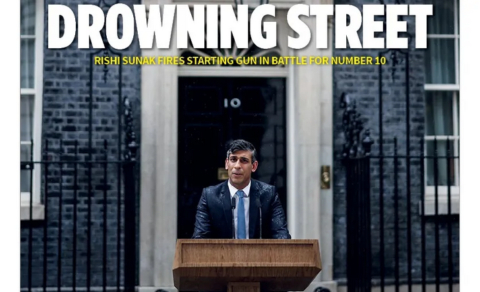While I don’t have a god in this fight, I find much to agree with Fortissax here as he responds to another writer’s commentary on modern western Christianity in an essay he titles “Spiteful Mutant Christians“:
Admittedly, I’m not a fan of the majority of Christians on the right, particularly traditionalists on Substack. Before I open a salvo on them, I will say many of them are educated, well-written, and well-spoken. Many of them are respectable, as far as I know, often fathers of many children, who aspire to virtue. This is certainly better than a great many. Many of them have been in this business far longer than I have. Many of them are intelligent and offhand I enjoy many of their general insights. Overall, I wish them no ill will.
However, I’m inclined to believe they’re mostly out-of-touch, often Generation X or elder Millennials who caught the last chopper out of Vietnam and fundamentally don’t understand the socioeconomic or cultural reality of younger Millennials or Generation Z. Who are colourblind by their narrow fraternal environment of American ruralite post-postmodern Christians who seldom interact with people outside of their pseudo-collapsitarian communities. I say “pseudo” because they’re not crazed Libertarian doomsday preppers building bunkers with a hand shovel in the backwoods of Montana, but I’ve observed that the Christian Traditionalist tendency is “Quietism”. From what I understand about Quietism, this is the Christian tendency to be pacifistic, avoid all confrontation, completely abandon North American cities, urban or civil life, and retreat to what is a romanticist fantasy of pastoral agrarian landscape of isolated God-fearing communities, have a pint, and wait for this to all blow over. They’re convinced of the moral, ethical and philosophical superiority of their rural life, an desperately wait for the day they can starve the city boys out.
On that note, the worst and most obnoxious of them are former city slickers or suburbanites who move to the countryside, but that’s an entirely different argument, and I’m getting sidetracked. Perhaps my biggest criticism of the Christians is that they are extremely presumptuous people in “this thing we call” the Dissident Right.
They piggyback off the remnant adherence and nominal identification to Christianity among the irreligious populace who, if they attend church at all, attend churches that are completely captured by the deistic DEI God of Equity. They pretend their super-ultra esoteric Pageau Hermetic Catholicism, Christ-is-King MAGA communist groyper Christian “nationalism”, or “based warrior priest” Eastern European war footage Orthodoxy is the norm. They pretend that the bumbling Christian faithful know or understand half of what they discuss on Telegram, X, or Substack, and this gives them a false sense of security and inevitability. They speak with a false confidence that, to outsiders, would appear that they’re truly in the know, that everyone is in fact Christian, and it’s only a matter of time before everyone else is. This is completely out of touch with reality. If you look at who is Christian and who isn’t, you start to see the brutal picture. For simplicity’s sake, we will focus on North America and Western Europe, with the dividing line being the old NATO boundaries. Let’s break down the facts:
In 2024, the following percentages of national populations identified as Christian
- Portugal: 84.8%
- Italy: 83.8%
- Denmark: 79%
- Norway: 76.7%
- United States: 65% (Pew Research Center)
- Belgium: 65%
- Canada: 53% (Pew Research Center)
- Spain: 67%
- Switzerland: 58.2%
- United Kingdom: 59%
- Germany: 57%
- Netherlands: 43%
- France: 63% (Pew Research Center)
On its face, you’d be inclined to believe that the majority of the Western world is Christian: God-fearing, church-going, has read and understands the Bible, and partakes in a community, correct? Wrong. The overwhelming majority of people who identify as Christian don’t go to church, and this is explained by baptisms at birth or early life inductions that never lead to anything. The real percentage of practising Christians is as follows, with Portugal hilariously being not even a quarter of what it claims, despite having the highest rate of identification.
In 2024, the following percentages of national populations regularly attending church.
- Portugal: 19% (Catholic News Agency)
- Austria: 14% (Catholic News Agency)
- Spain: 13.4% (Wikipedia)
- Italy: 20% (Catholic News Agency)
- Germany: 9% (Catholic News Agency)
- Netherlands: 7% (Catholic News Agency)
- Switzerland: 5% (Wikipedia) (BFS Administrations Website)
- France: 5% (Catholic News Agency)
- Belgium: 5% (Catholic News Agency)
- United Kingdom: 5% (Catholic News Agency)
- Canada: 5% (CareyNieuwhof.com)
- United States: 24% (weekly attendance) (ChurchTrac) (PRRI)
- Norway: 3% (Catholic News Agency)
- Sweden: 3% (Catholic News Agency)
- Denmark: 3% (Catholic News Agency)
I was technically baptized Catholic, specifically because it was believed that I’d have greater access to educational opportunities, and not out of any genuine piety. I was given a choice at 3 years old to go to my first communion or watch Power Rangers. I’ve never read the Bible, save for two versions of half the book of Romans before putting it down, incredibly unimpressed with Paul failing to sell me on Christianity. My family has been irreligious for four generations. My province of origin, Quebec, is the most secular part of North America, and I’m proud of it. I don’t believe we can sever the influence of Christianity completely, and I don’t think we should. It is an integral part of our heritage, and we need to respect it. You can’t claim to honour your ancestors, or even western history without honouring Christianity. I do however believe that secularism gave the West an opportunity for a clean enough slate to find the definitive, ongoing unraveling of Truth. I chose hero worship. No honest person would say this makes them a Christian.
The purpose of bringing up these statistics is to perform a reality check. Christians are not the majority. Not in the general population, and not in the Dissident Right. Christians do not have a monopoly on morality. Christians do not have a monopoly on Truth. Christians completely lack the social capital and popular consensus to instigate the social policies they want in accordance with their faith on a civilizational scale. I believe that part of the issue is that the discourse is civilization-wide, but most of the Christianity is coming from North America, specifically the United States of America, where it represents a small and dwindling political faction of a broader conservative movement. There is not going to be a Fifth Great Awakening — their latest awakening as Greene himself would admit, is Wokism. A deistic Christian heresy. The public is not going to kneel, convert to disparate, squabbling denominations of Christianity marching in lockstep with Regimevangelicalism.
Blue Checkmark Christianity™ has recently signaled a green light to the millions of Global South Catholic faithful that it’s okay to illegally migrate to and trespass in Europe. The Hierophant has ordered His faithful to abide.
The fact of the matter is that Dissident Christians are a minority of a minority — they’re the equivalent of Sikhs in India. One percent of the population, and yet one loud, obnoxious voice giving all the impression they’re a bigger majority than they are. Christians like Misanthrope are as barely relevant as the degenerate neopagans and their profligate made up religions with zero legitimacy or antiquity. Hiding their views from their pastors, priests and the rest who attend their churches. It is an absolute LARP to speak with the audacity and arrogance that they do to the great secular majority, and or other groups who are attempting to cultivate faith with sincerity. You’d think if their truth was so self-evident, they’d be winning a whole lot more people, and the West would be Christian, but no. They’re going out the same way Zoroastrianism did, and after that, Hellenism, the state religion of the Roman Empire. Weak men, wicked priests, irreligiosity, bureaucratization of the liturgy, heretical reinterpretation of the word. I could go on.







